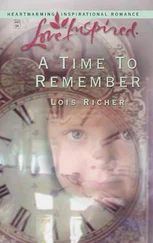Alexander Todd - A Time to Remember
Здесь есть возможность читать онлайн «Alexander Todd - A Time to Remember» весь текст электронной книги совершенно бесплатно (целиком полную версию без сокращений). В некоторых случаях можно слушать аудио, скачать через торрент в формате fb2 и присутствует краткое содержание. Город: Cambridge, Год выпуска: 1983, ISBN: 1983, Издательство: Cambridge University Press, Жанр: Химия, Биографии и Мемуары, на английском языке. Описание произведения, (предисловие) а так же отзывы посетителей доступны на портале библиотеки ЛибКат.
- Название:A Time to Remember
- Автор:
- Издательство:Cambridge University Press
- Жанр:
- Год:1983
- Город:Cambridge
- ISBN:0 521 25593 7
- Рейтинг книги:3 / 5. Голосов: 1
-
Избранное:Добавить в избранное
- Отзывы:
-
Ваша оценка:
- 60
- 1
- 2
- 3
- 4
- 5
A Time to Remember: краткое содержание, описание и аннотация
Предлагаем к чтению аннотацию, описание, краткое содержание или предисловие (зависит от того, что написал сам автор книги «A Time to Remember»). Если вы не нашли необходимую информацию о книге — напишите в комментариях, мы постараемся отыскать её.
A Time to Remember — читать онлайн бесплатно полную книгу (весь текст) целиком
Ниже представлен текст книги, разбитый по страницам. Система сохранения места последней прочитанной страницы, позволяет с удобством читать онлайн бесплатно книгу «A Time to Remember», без необходимости каждый раз заново искать на чём Вы остановились. Поставьте закладку, и сможете в любой момент перейти на страницу, на которой закончили чтение.
Интервал:
Закладка:
Two years after I assumed the chairmanship of the Nuffield Foundation I was - much to my surprise - nominated for the Presidency of the Royal Society, which office I assumed on 1 December 1975. To be elected President of the Royal Society is the supreme accolade in British science and in my case it had an added sentimental value. My father-in-law, Sir Henry Dale, had been its President from 1940 to 1945 and did indeed formally admit me to the Fellowship in 1942; he, too, had been awarded a Nobel Prize and was a member both of the restricted German Order Pour le Merite and of the British Order of Merit. I had myself been made a member of Pour le Merite in 1965 and when, in 1977, I had the honour to be admitted to the Order of Merit it put my wife in a unique position!
8. The Royal Society
The Royal Society or - to give it its full title - the Royal Society of London for Improving Natural Knowledge, is the oldest of the existing national scientific academies and it enjoys an immense prestige in the world of science. Its origins go back to about 1645 when a group of scholars made a habit of meeting together in London and, during the Protectorate, partly there and partly in Oxford, but it was formally founded in 1660 and received its first Royal Charter in 1662. Unlike many national academies it confines its activities to natural science, both pure and applied. One of its earliest secretaries, Robert Hooke, in 1663 laid down rules for the Royal Society as follows:
The business and design of the Royal Society is - To improve the knowledge of naturall things, and all useful Arts, Manufactures, Mechanick practises, Engynes and Inventions by Experiments - (not meddling with Divinity, Metaphysics, Moralls, Politicks, Grammar, Rhetorick, or Logick).
These rules are still followed, and define fairly accurately the scope of the Society's activities. Over the three centuries of its existence it has had frequent contacts with British governments, and has given advice and assistance in matters of policy - for example, in the setting up of the Royal Observatory at Greenwich and (much more recently) of the National Physical Laboratory; but it has always kept clear of political involvement.
Like all human institutions, the Society has had its ups and downs. Periods in which it was vigorous and influential have alternated with others when it was relatively inactive and inward looking; it has, however, always been steadfast in its recognition and support of outstanding ability in science. When I became President, the Society was emerging from a rather difficult period. In the 1930s it had been on the whole quiescent, and, indeed, had something of the air of a scientific gentlemen's club; the war of 1939-45, however, saw it plunged into the problems of scientific policy as the allied governments sought (with success) to harness science to the war effort. By the end of the war, science and its potential stood high in political esteem, and the Royal Society was supremely well placed to fill the role of scientific adviser to government in developing the new post-war world. Unfortunately that chance was missed. Dale, who had been President during most of the war, went out of office in 1945 and was succeeded first by Sir Robert Robinson and then by Lord Adrian, neither of whom had any interest in political or governmental matters. Adrian's successor, Sir Cyril Hinshelwood, was again essentially a scholar and a scientist and occupied himself largely with the celebration of the Society's Tercentenary and with its foreign relations, while Sir Howard (later Lord) Florey in his turn was fully occupied with the problem of reorganising and rehousing the Society in new premises in Carlton House Terrace - a task which involved, among other things, much detailed negotiation and extensive fund-raising. When Patrick (later Lord) Blackett took over in 1965 he certainly moved to increase the Society's role in national and international affairs, but, by aligning himself and also endeavouring to align the Society with the political party then in power, he broke one of Hooke's rules and, in my view, damaged the Society in its external relations. Under my immediate predecessor, Sir Alan Hodgkin, repair of that damage and recovery was put in train, but still had some way to go. I decided that I should endeavour (1) to increase the influence of the Society in providing government with advice on scientific aspects of policy while remaining totally independent; (2) to increase to the maximum extent its support of research in the then current climate of financial restrictions by developing and extending its system of research professorships and fellowships; (3) to develop closer relations with applied science and engineering and (4) to strengthen its international relations. The degree to which these efforts were successful is for others to judge, but they are, in any case, too recent to permit a fair judgement.
One of the duties of the President of the Royal Society is to deliver each year an Anniversary Address to the Society at its annual meeting on St Andrew's Day. Although it had not been customary for Presidents to devote their Addresses to current problems, I decided that my Anniversary Addresses should be a vehicle for my views on matters of public concern. This I endeavoured to do, and in each of my five Addresses I dealt with matters related to science which were of current concern to the Society and to the public at large. Because of their importance as indicators of my views, and because quotations from them would hardly do justice to these views, I have included the essential parts of them as appendices.
During my first year of office I found myself much involved with problems relating to the freedom of science and of scientific enquiry, and with much public agitation about the treatment of certain scientists in the Soviet Union and in some South American countries. My views on these matters are set out in my Address delivered on 30 November 1976, of which I append the relevant portion as Appendix II. The end of 1976 brought with it other problems. The President of the Royal Society relies heavily on the Executive Secretary and four Honorary Officers - the Physical, Biological, and Foreign Secretaries and the Treasurer. Although having had only one year in office, I was faced with the need to appoint three new Officers - a Treasurer, a Biological and a Foreign Secretary -the holders of these posts being due to retire at the 1976 annual meeting. I was fortunate enough to make three excellent appointments, but something approaching disaster struck only some three weeks after the Annual Meeting. Sir David Martin, who had been Executive Secretary for some thirty years, died suddenly and without any prior warning as a result of a massive heart attack shortly before Christmas 1976 - only a couple of hours after he and I had attended the annual staff Christmas party. David was not just a dear friend of many years' standing, but he really was the linchpin of the Society and his tragic loss put me in real trouble. Things might, however, have been worse; at least I had appointed three outstanding men as Honorary Officers - John Mason, David Phillips and Michael Stoker - and Sir Harrie Massey was continuing as Physical Secretary. Harrie was a real tower of strength, and in Ronald Keay, David Martin's deputy, we were lucky enough to have a man of experience and ability who could take over the duties of Executive Secretary. So we survived, and were able to carry on with the programmes I had in mind.
In January 1977, in pursuit of my wish to strengthen our overseas relations, I visited the Venezuelan and Brazilian Academies of Science, delivering the Isaac Newton Lecture to the former in Caracas. This was my first visit to South America and, although Venezuela and Brazil are very different from one another, both of them conveyed to me the same uneasy feeling that I have in India, where similar extremes of wealth and poverty exist side by side. But there was no mistaking the warmth of the welcome my wife and I received; I am sure that our visit was well worth while and not only helped materially to strengthen relations between the Royal Society and these South American Academies, but in a wider sphere between these two countries and the United Kingdom.
Читать дальшеИнтервал:
Закладка:
Похожие книги на «A Time to Remember»
Представляем Вашему вниманию похожие книги на «A Time to Remember» списком для выбора. Мы отобрали схожую по названию и смыслу литературу в надежде предоставить читателям больше вариантов отыскать новые, интересные, ещё непрочитанные произведения.
Обсуждение, отзывы о книге «A Time to Remember» и просто собственные мнения читателей. Оставьте ваши комментарии, напишите, что Вы думаете о произведении, его смысле или главных героях. Укажите что конкретно понравилось, а что нет, и почему Вы так считаете.










